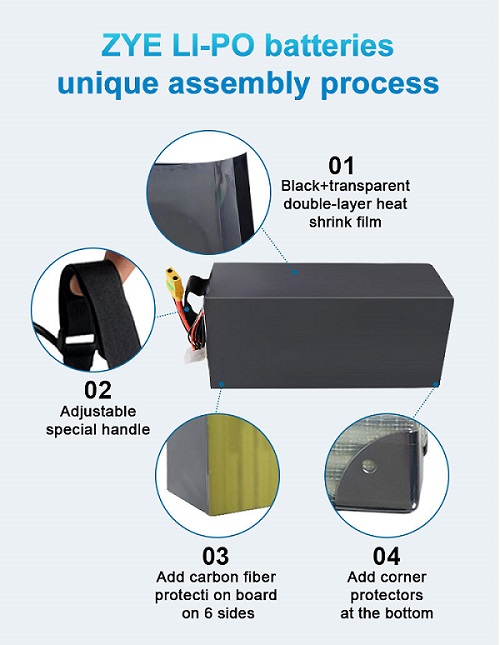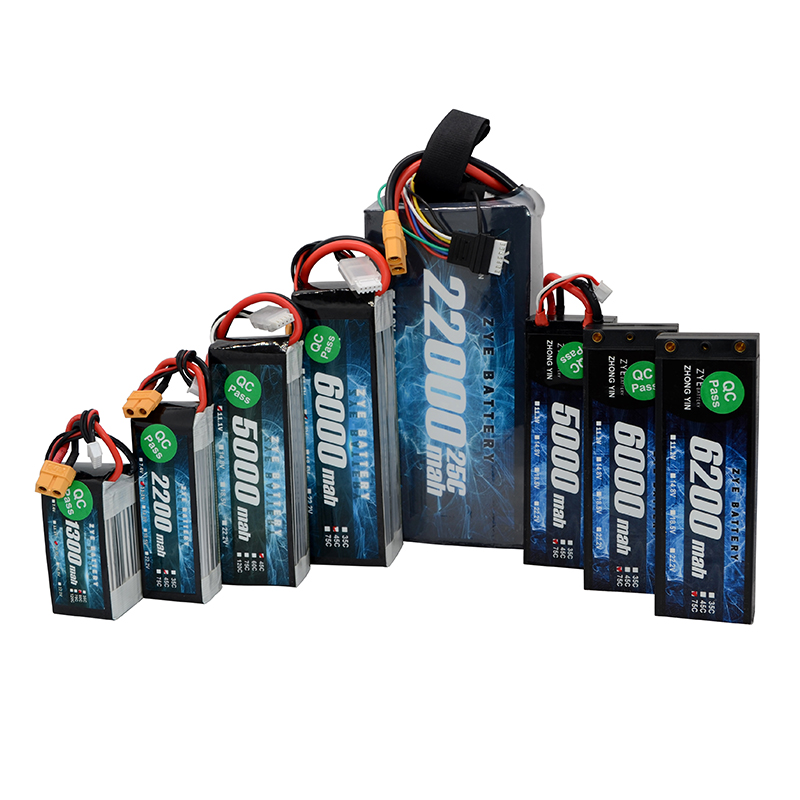Are LiPo Batteries Safe for Air Travel or Shipping Internationally?
2025-06-27
Lithium Polymer (LiPo) batteries have become ubiquitous in modern electronics, powering everything from smartphones to drones. However, their high energy density and potential fire risk have raised concerns about their safety during air travel and international shipping. This comprehensive guide will explore the regulations, precautions, and best practices for traveling with or shipping LiPo batteries.
TSA & FAA Rules: Can You Bring LiPo Batteries on a Plane?
The Transportation Security Administration (TSA) and Federal Aviation Administration (FAA) have established specific guidelines for carrying LiPo batteries on aircraft. Understanding these rules is crucial for passengers and shippers alike.
Carry-on vs. Checked Baggage
LiPo batteries are generally allowed in carry-on baggage but prohibited in checked luggage due to safety concerns. If a LiPo battery ignites in the cabin, the fire can be quickly detected and addressed by flight attendants. However, fires in the cargo hold, where they are harder to reach, can escalate into more severe hazards. For this reason, airlines implement strict regulations to keep LiPo batteries in the cabin, where risks are more manageable.
Watt-hour Limitations
The FAA imposes restrictions based on the battery's watt-hour (Wh) rating:
1. Batteries up to 100Wh: Allowed in carry-on without airline approval
2. Batteries between 100-160Wh: Require airline approval, limited to two per passenger
3. Batteries over 160Wh: Prohibited in both carry-on and checked baggage
Spare Battery Regulations
Spare LiPo batteries must be individually protected to prevent short circuits, which could lead to dangerous consequences such as fires. Protection methods include placing batteries in their original retail packaging, covering terminals with electrical tape, or storing each battery in separate plastic bags. These precautions ensure that the battery contacts do not come into contact with metal objects or each other, reducing the risk of short circuits and enhancing overall safety during transport.
Fireproof Bag Requirements: Are They Mandatory for Air Travel?
While not explicitly mandated by most airlines or regulatory bodies, using fireproof LiPo bags is highly recommended for air travel and shipping.
Benefits of Fireproof LiPo Bags
Fireproof LiPo bags provide essential protection for lithium polymer batteries, offering several significant benefits. First and foremost, these bags can contain potential fires or explosions, preventing them from spreading to other items in your luggage or causing harm to passengers. In the event of a battery malfunction or thermal runaway, the fireproof material helps to suppress flames, providing valuable time for the situation to be managed.
Additionally, fireproof bags offer protection against physical damage. LiPo batteries are sensitive to pressure, punctures, or impacts, and a fireproof bag acts as a cushion that absorbs shocks, reducing the risk of battery failure. For travelers and airline staff, using fireproof bags provides peace of mind, ensuring that they are taking proactive measures to keep batteries safe during transport. This added layer of protection is especially important for those carrying spare batteries or high-powered devices.
Choosing the Right Fireproof Bag
When selecting a fireproof bag for LiPo batteries, several factors should be considered to ensure maximum safety. First, pay attention to the heat resistance rating of the bag. It’s essential to choose a bag that can withstand the high temperatures generated by a malfunctioning battery without compromising its integrity. The size and capacity of the bag are also crucial—select a bag that can comfortably accommodate the number of batteries you need to carry while ensuring they are not overcrowded.
Durability and construction quality are key factors to consider, as the bag must be able to withstand physical stress and wear over time. The closure mechanism should also be easy to use, ensuring that the bag remains securely closed during travel while allowing for quick access when needed.
Alternative Safety Measures
If a fireproof bag is unavailable, there are alternative safety precautions to consider. One option is to use a hard plastic case with foam inserts. The foam helps to secure the batteries in place and provides an additional layer of protection against impacts and punctures. Another safety measure is to individually wrap each battery in non-conductive material, such as insulating tape or plastic sleeves. This prevents short circuits and minimizes the risk of fires caused by contact with metal objects.
Additionally, it’s important to keep batteries away from metal items or any other potential conductors that could cause a short circuit. By taking these precautions, you can significantly reduce the risk of battery-related incidents during travel.
Capacity Limits: Why Are High-Capacity LiPo Batteries Restricted?
High-capacity LiPo batteries face stricter regulations due to their increased energy density and potential fire risk.
Understanding Energy Density
LiPo batteries pack a significant amount of energy into a small space. As capacity increases, so does the potential severity of a thermal runaway event.
Thermal Runaway Risks
Thermal runaway occurs when a battery cell overheats, potentially leading to:
1. Rapid temperature increase
2. Release of flammable electrolyte
3. Ignition and propagation to nearby cells
Balancing Safety and Utility
Regulators must strike a balance between:
1. Allowing passengers to carry essential electronics
2. Mitigating risks to aircraft and passengers
3. Ensuring efficient air travel operations
International Variations in Regulations
While many countries follow similar guidelines, it's essential to check specific regulations for:
1. Your departure country
2. Transit countries (for connecting flights)
3. Your final destination

Best Practices for Air Travel with LiPo Batteries
To ensure a smooth travel experience and maintain safety, follow these guidelines:
Pre-Travel Preparation
1. Calculate the watt-hour rating of your batteries
2. Contact your airline for approval if necessary
3. Invest in appropriate protective cases or bags
4. Discharge batteries to about 30% capacity for optimal safety
At the Airport
1. Declare your batteries at security checkpoints
2. Be prepared to demonstrate safety measures
3. Keep batteries easily accessible for inspection
During the Flight
1. Avoid charging batteries in-flight
2. Keep batteries away from heat sources
3. Monitor devices for signs of overheating
International Shipping Considerations
Shipping LiPo batteries internationally involves additional complexities:
Carrier-Specific Policies
Different shipping companies have varying policies regarding LiPo batteries. Research and comply with the specific requirements of your chosen carrier.
Documentation and Labeling
Proper documentation and labeling are crucial for international shipments:
1. Include a detailed description of contents
2. Use appropriate hazardous material labels
3. Provide necessary customs declarations
Packaging Requirements
International shipments often require:
1. UN-certified packaging
2. Cushioning materials to prevent movement
3. Clear markings indicating the presence of lithium batteries
Conclusion
While LiPo batteries present unique challenges for air travel and international shipping, understanding and adhering to regulations can ensure safe and compliant transportation. By following best practices, using appropriate safety measures, and staying informed about current guidelines, travelers and shippers can navigate the complexities of LiPo battery transport with confidence.
For high-quality, safe LiPo batteries that meet international standards, consider Ebattery's range of products. Our expertise in battery technology ensures you receive reliable power solutions for your devices while prioritizing safety during travel and shipping. Contact us at cathy@zyepower.com to learn more about our offerings and how we can meet your specific battery needs.
References
1. Federal Aviation Administration. (2022). Batteries Carried by Airline Passengers.
2. Transportation Security Administration. (2023). What Can I Bring? - Batteries.
3. International Air Transport Association. (2023). Dangerous Goods Regulations for Lithium Batteries.
4. Civil Aviation Safety Authority. (2022). Travelling with Batteries.
5. European Union Aviation Safety Agency. (2023). Portable Electronic Devices.
























































